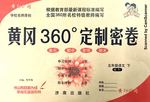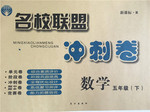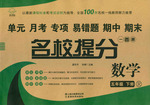题目内容
【题目】--- Excuse me, I wonder if you can help me.
--- Sure. (2012~2013.浙江温州龙湾中学高一第一次月考)
A. What help?
B. What is this?
C. What is it?
D. What do you want?
【答案】C
【解析】由第一句可知是在寻求帮助,因此应询问帮什么忙,故选C。

练习册系列答案
 黄冈360度定制密卷系列答案
黄冈360度定制密卷系列答案 阳光考场单元测试卷系列答案
阳光考场单元测试卷系列答案 名校联盟冲刺卷系列答案
名校联盟冲刺卷系列答案 名校提分一卷通系列答案
名校提分一卷通系列答案
相关题目